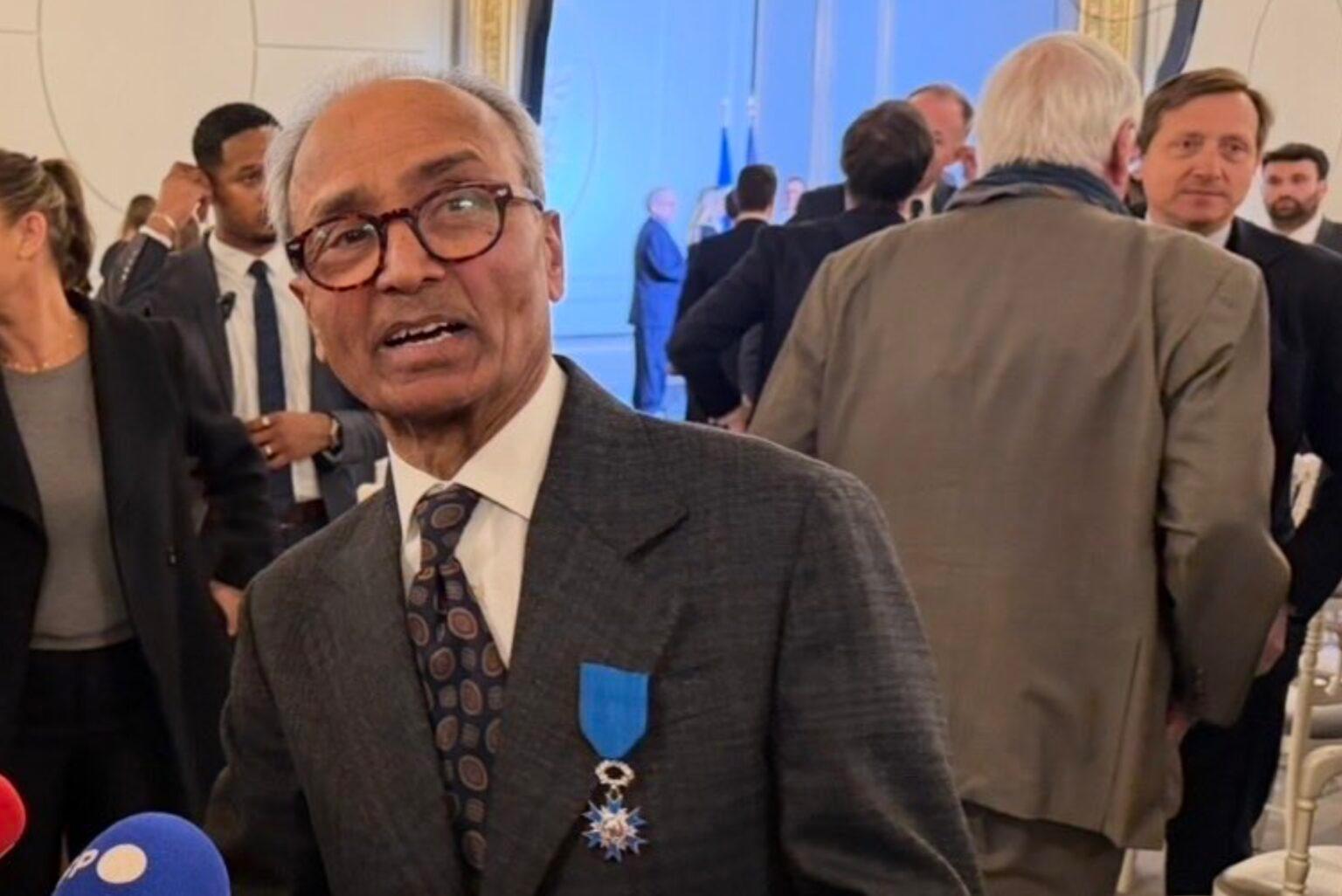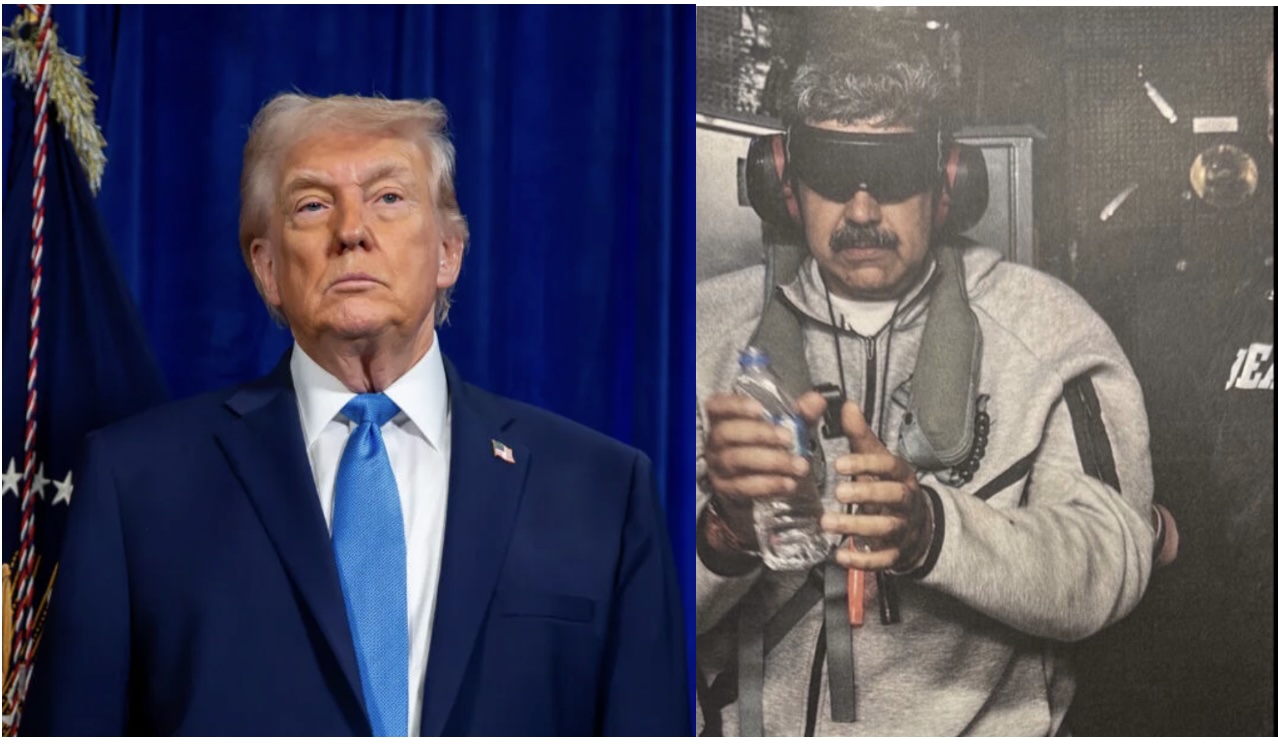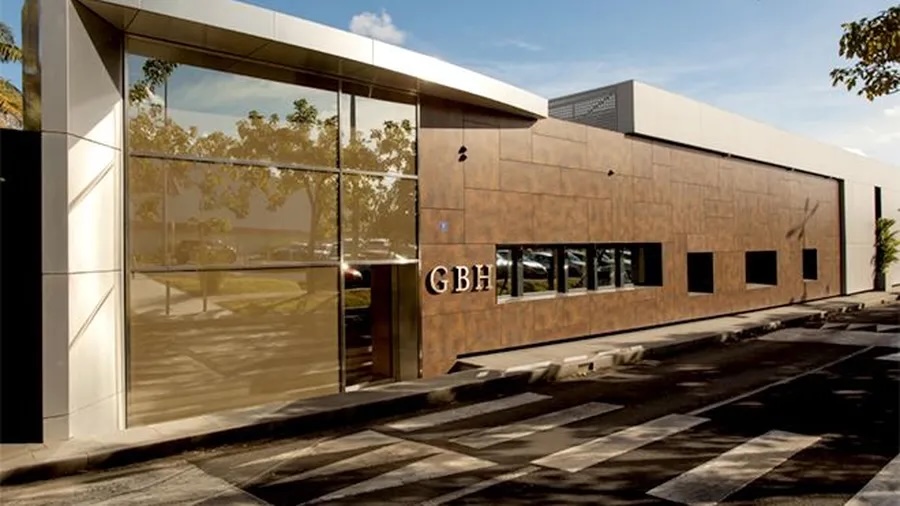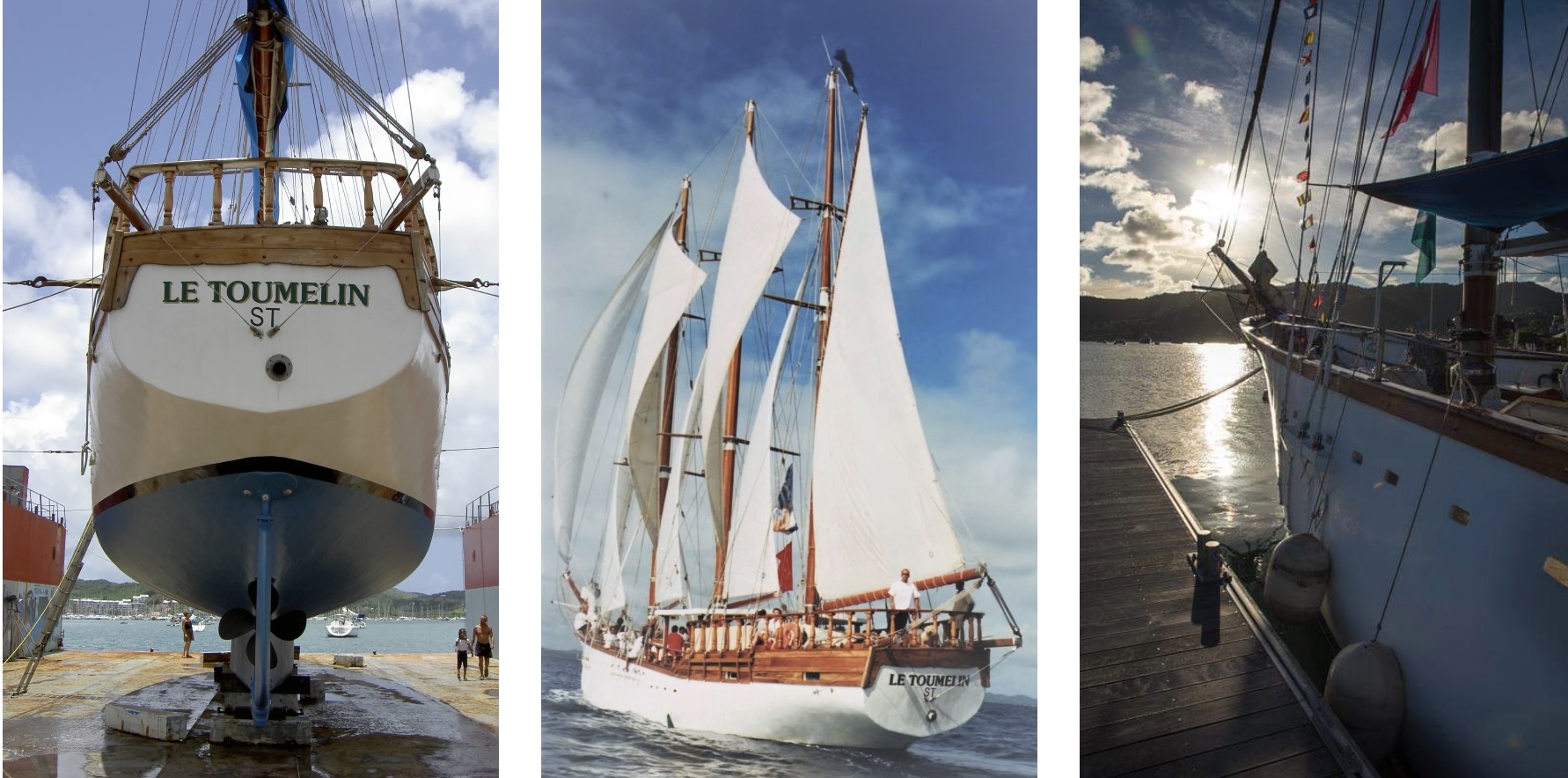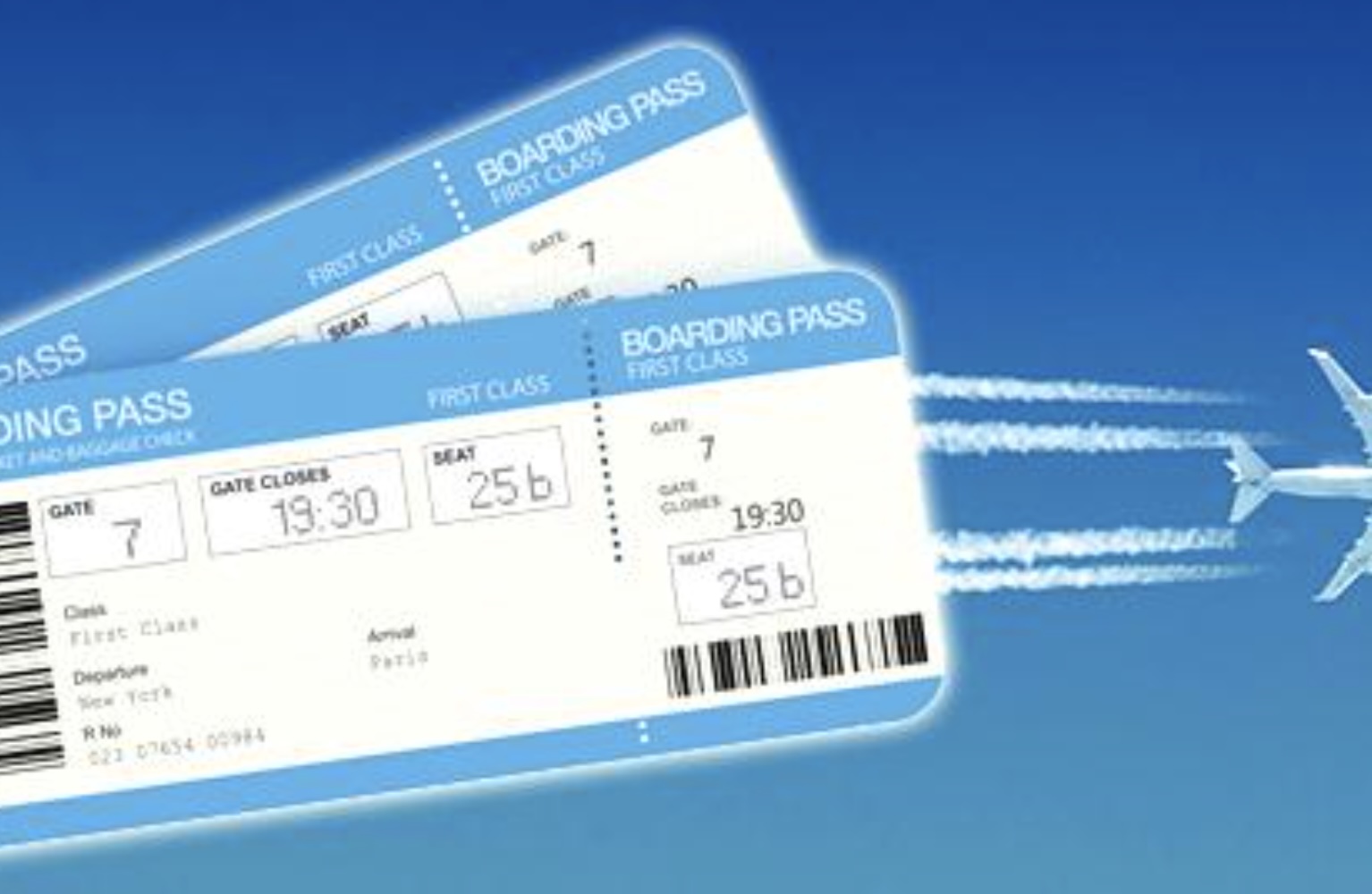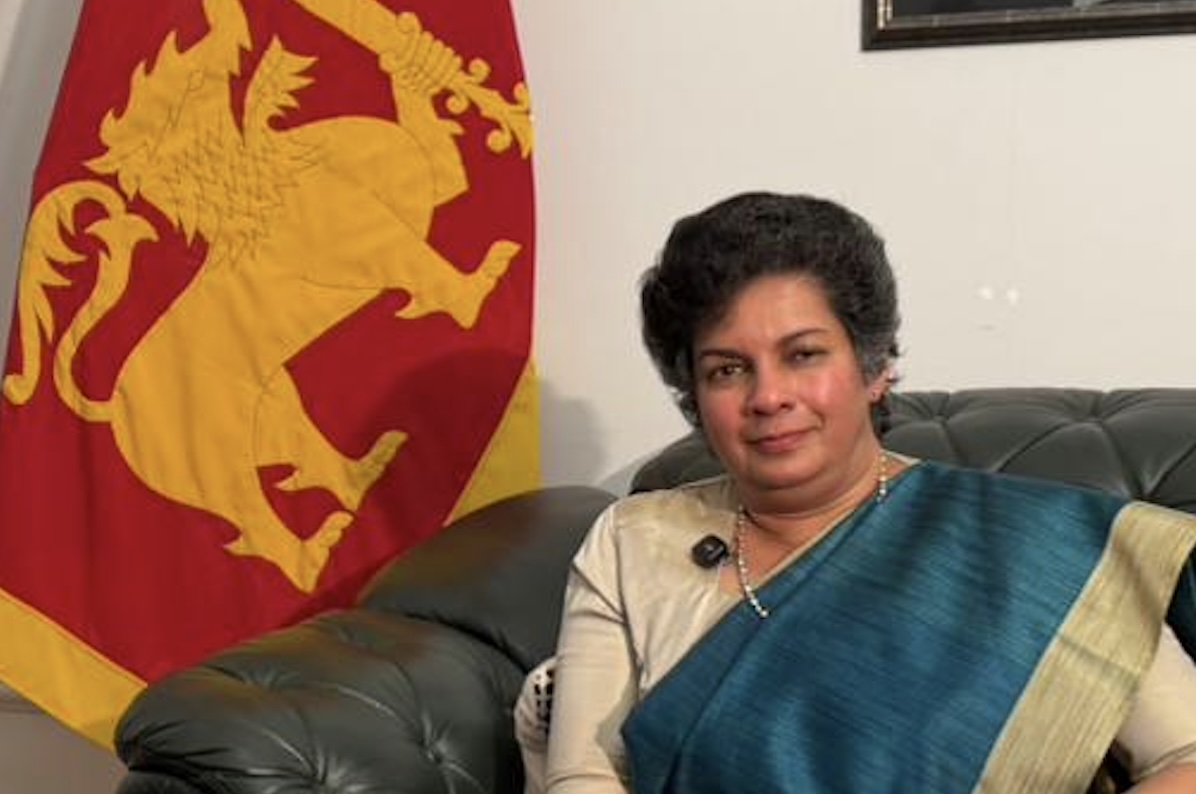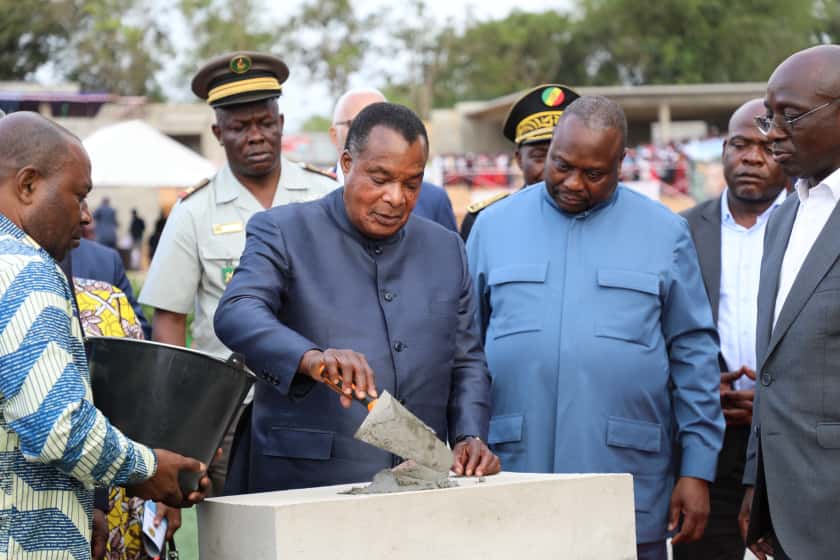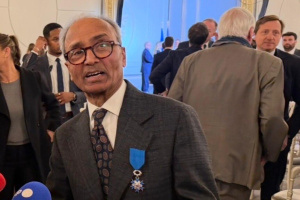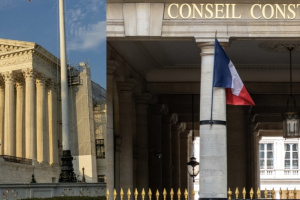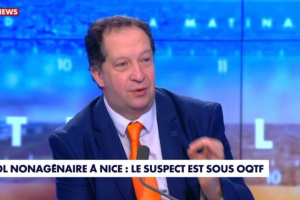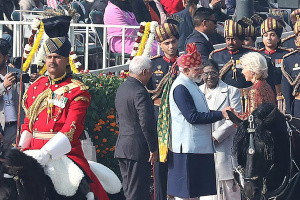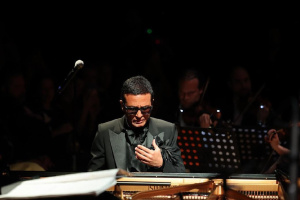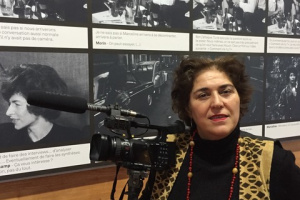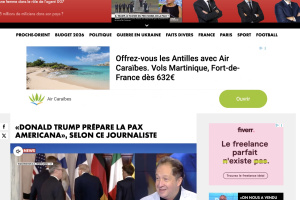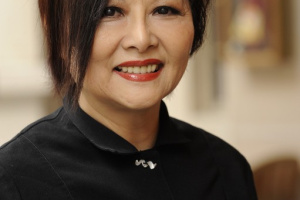Interview with Andreas Krieg, Professor at the Department of Defense Studies at King’s College London and a leading expert on the Middle East crisis. Andreas Krieg participated on March 14, in Paris, to the Conference of launching of the rubric « In the middle ».
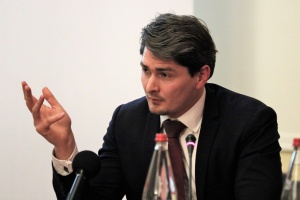
Opinion Internationale: From your perspective, what is the triggering factor of the Gulf crisis in June 2017?
Andreas Krieg: The 2017 Gulf Crisis started with the hack of the Qatar News Agency and the subsequent spread of false information. Since reaching a diplomatic stalemate in August 2017, the crisis although not further escalated, has been sustained by a disinformation campaign targeting predominately Western media, academia and policy makers.
Opinion Internationale: On what fundamental disagreement is built this campaign of misinformation against Qatar?
Andreas Krieg: Well, in order to solve this crisis, one needs to look beyond the crisis as a relationship conflict or a conflict over issues; instead, one needs to look at this feud as an ideological conflict over narratives. Some have looked at this conflict as a ‘Game of Thobes’ between royal families, others have looked at it as a conflict over the Gulf States’ relationship with Iran or terror finance. In reality, the 2017 Gulf Crisis has drawn in more than just royal families, and has long departed the realm of honest dialogue over how to tackle terror finance or deal with the Islamic Republic. Since the late summer 2017, the conflict is sustained by a polarized clash over narratives, smear campaigns and false accusations – all in an effort to undermine Qatar’s legitimacy and credibility within the eyes of a mostly Western audience.
Opinion Internationale: But this war of words has its own origin, no?
Andreas Krieg: Indeed, this clash over narratives is rooted in the Arab Spring and the diametrically opposed visions of how to return the region to a state of stability.
Opinion Internationale: That is to say…
Andreas Krieg: On one side of the divide stands the Qatari vision, a narrative regionally promoting pluralistic governance, civil liberties and social justice. The Qatari narrative, although arguably naïve and idealistically removed from the socio-political reality of the region, emerged from the vision of one man, Hamad bin Khalifa Al Thani, the father emir, whose rise to power in the early 1990s transformed the country from a barely sustainable oil exporter to the world’s largest producer of LNG. Along with the socio-economic transformation of the country came a socio-political transformation: the small and highly homogenous indigenous population of 300,000 was able to maintain direct socio-political relations with the emir, was granted relative freedom of speech and access to liberal education. For the father emir, socio-political liberalization had to go hand in hand with the economic hyper-development of the country – a luxury he could grant as he did not have to be concerned about the same divisive, sectarian tendencies plaguing Qatar’s neighbours.
Opinion Internationale : and on the Coalition side?
Andreas Krieg: On the other side of the divide stands the Emirati vision. It is a less liberal vision, based on the myth of authoritarian stability, strong central statehood and the containment of any form of dissidence. The Emirati narrative was conceived by one man, Mohammad bin Zayed Al Nahyan, the Crown Prince and de-facto ruler of the UAE – a military man paranoid about dissident non-state actors and political Islam. For him, only a strongman heading a strong state, could bring about socio-economic transformation. Therefore, in the UAE hyper-development though accompanied by social liberalization and a clear division of religion and state, was never accompanied by socio-political liberalization. The Al Nahyans of Abu Dhabi have accumulated disproportionate power in the federation, any form of dissidence is quelled early on, freedom of speech is restricted, and political Islam has been widely purged from the Emirates in the early 2010s.
Opinion Internationale: Then, the Arab Spring has above all been very revealing of their disagreements?
Andreas Krieg: Yes, exactly. When the Arab youth took to the streets in 2010, both individuals, Hamad bin Khalifa and Mohammad bin Zayed, framed the risks and opportunities arising from the revolts through their ideological lens. For Qatar, the demands for more social justice, civil liberties and freedom from oppression were calls for regime change, granting the people the right of self-determination. In the UAE, the collapse of regimes in Tunisia, Egypt and Libya and violent protests in Syria, Bahrain and Yemen, were perceived as strategic risks that could throw the region into a state of instability and chaos. Hence, while Qatar approached the Arab Spring idealistically, the UAE approached the protests turning revolutions as existential security threats. Based on the Qatari vision, the Middle East could be transformed into a more egalitarian, pluralistic and just socio-political construct by propping up regime opposition, among others Islamist movements close to the Muslim Brotherhood. For the UAE, failing regimes had to be replaced with most sustainable regimes – something that could only be achieved by investing into individuals with a pedigree of strongmanship.
Opinion Internationale: You just mentioned the Muslim Brotherhood. This is a very important point of the dispute between Doha and its neighbourhood, isn’t it?
Andreas Krieg: Rightly so the support for Islamist non-state actors became a red line for Mohammad bin Zayed who had long been concerned about the domestic influence of Emirati groups close to the Muslim Brotherhood. Consequently, as Qatar provided the Arab people with a voice to channel their dissidence, provided support to rebel groups in Libya, Syria and Yemen, as well as embraced the newly elected Egyptian President Morsi; the Emirates embarked on propping up counter-revolutionaries of the likes of Sisi in Egypt, Haftar in Libya and Saleh in Yemen. Qatar had become a force for change into an uncertain future, while the Emirates had become a force to restore the old status quo of authoritarian stability.
Opinion Internationale: So, we see a shift from a difference of judgment about the Arabic world situation to a fierce competition?
Andreas Krieg: You are quite right. What started as a disagreement about the socio-political future of the Arab World in the late 2000s, developed into a fierce competition between Doha and Abu Dhabi after 2011; not just in the political and economic domain but increasingly also in the information domain. Qatar and the Emirates found themselves on opposite sides in Tunisia, Libya, Egypt and Yemen. Yet, although the feud was mostly fought out financially via proxies overseas, the rhetoric between the two GCC partners became tangibly more contentious, culminating in the 2014 Gulf Crisis, where under the initiative of Mohammad bin Zayed, also Saudi Arabia and Bahrain withdrew their ambassadors from the Qatari capital. Despite the fact that this crisis was formally resolved behind closed doors, the Emirates had embarked on a new strategy tapping into an infrastructure it had built since 2008: weaponizing information offensively.
Opinion Internationale: with a clear target, the United States.
Andreas Krieg: Yes. It is quite obvious. Conscious of the value of global branding, the UAE had commenced in 2008 to turn its image around in the United States, from ‘just another Muslim country’ to a ‘stable and reliable partner for the US in a region of instability’. The initially defensive public diplomacy strategy of the Emirates targeted the nexus of media, subject matter experts and policy making in the already highly polarized American public sphere. With the help of a well-endowed ambassador in Washington, the UAE were able within a decade to positively shape perception across the political spectrum of America’s political elite, but particularly within conservative circles. Tens of millions of dollars were poured into think thanks such as the Atlantic Council, the Middle East Institute and its very own Arab Gulf State Institute, tapping into existing conservative biases against political Islam and Iran – biases that Abu Dhabi was increasingly able to exploit in its own favour. Whereas in 2008 the Emirates were strategically investing into building its global brand trying to defuse existing biases in Washington, by 2014 they had switched to a more offensive use of narratives against the rise of political Islam post-Arab Spring, the Muslim Brotherhood and the role of Qatar in supporting revolutionaries. The UAE’s narrative became increasingly aligned with that of conservative think tanks and media in the United States stoking fears of terrorism and prioritizing security over liberalization in the Middle East.
Opinion Internationale: And Qatar remained waiting arms at the ready?
Andreas Krieg: In some respects, yes. By 2017, the UAE had built a deeply embedded lobby in Washington, while Qatar had remained true to its traditions of discretion, hoping that its policies and narratives would speak for themselves. In reality Qatar had become an outsider on Capitol Hill, whose lack of investing strategically into public diplomacy, had allowed the UAE to dominate narratives around key policy makers. Meanwhile, the UAE had brought Saudi Arabia into the conversation in Washington. A deepening personal relationship between Mohammad bin Zayed Al Nahyan and the ever more powerful Saudi Crown Prince Mohammad bin Salman al Saud brought with it an ideological rapprochement of the two countries, providing Saudi Arabia with the access to the Emirati communication infrastructure – something that became of strategic importance amid the 2016 Presidential Elections. Early on, the UAE and Saudi Arabia were reaching out to the Trump campaign, hoping that with a shift to a more conservative policy towards the Middle East, anti-Islamist rhetoric and Iran-related fear mongering would become en vogue again. The personal relationships between Trump’s son-in-law Kushner and confidants of the two Crown Princes of Abu Dhabi and Riyadh granted the UAE and Saudi Arabia direct access to the new White House. In particular the financial troubles of Kushner’s real estate company made him vulnerable to manipulation from the UAE and Saudi Arabia after Qatar denied him a bail-out. These personal relationships helped forge an ideological, albeit unlikely, neo-conservative alliance between two Gulf monarchies, the Trump White House, the pro-Israel lobby and conservative think tanks in DC.
Opinion Internationale: and that worked?
Andreas Krieg: It is a self-evident truth. The interplay of this neo-conservative alliance and the Emirati-influenced nexus of conservative media, think tanks and policy makers in the United States, had created a hostile climate in Washington for Qatar, which the UAE thought to be ripe to exploit in late May 2017. After weeks of negative press against Qatar in the US, Qatar’s News Agency was hacked, disseminating false statements of Qatar’s Emir that were then republished by Saudi and Emirati media disregarding Qatar’s assertions that these statements had been fabricated. When just two weeks later the quartet of Saudi Arabia, the Emirates, Egypt and Bahrain imposed the blockade on Qatar, unsubstantiated claims against Qatar were released accusing the emirate of funding terrorism and dealing too closely with Iran. Although an ambiguous list of demands was released, the blockading countries neither provided any substantiated evidence for its claims nor suggested any remedies for Qatar to resolve the crisis.
Opinion Internationale: This strategy of information war against Doha has been developed also regard to other international big players.
Andreas Krieg: Of course! Under the leadership of the Emirates, the blockading countries had created echo chambers in conventional and social media amplifying narratives about Qatar’s support for terrorism, the illegitimacy of the Al Thani leadership in Doha, the issues involved in Qatar hosting the FIFA World Cup 2022, and Qatar’s proximity to Saudi’s archenemy Iran. While this disinformation campaign never really spilled over to Europe, UAE-sponsored ‘opposition conferences’ across Europe were supposed to win over European hearts and minds for the boycott against Qatar. Taken by surprise, Doha had to play catch-up after having neglected its strategic communication for years, to counter the well-planted, yet unsubstantiated, accusations. Years of cautious public diplomacy had made Qatar vulnerable to the disinformation campaign by the blockading countries – something Qatar has since tried to remedy by investing strategically into getting its narrative heard.
Unlike the UAE, Qatar has widely been reactive rather than proactive in its communication strategy trying to debunk the various myths and accusations made. Qatar’s response to the defamation campaign was widely factual rather than emotional, trying to provide strategic narratives for its post-Arab Spring policies across the region. Although state-owned Al Jazeera adapted its broadcasting to the new diplomatic reality, increasing the coverage of the Saudi-led War in Yemen and the political reshuffles within Riyadh, Qatari officials and media outlets were wary not to escalate the war over narratives. After successfully absorbing the first shocks, Qatar embarked on a defensive ‘explanation’ campaign targeting Western audiences – a campaign that though highlighting the costs of the blockade on the country, put emphasis on Qatar’s role as a vital ally for Western powers in the region.
Opinion Internationale: However, Doha did not totally lose this war of words and representations…
Andreas Krieg: We might say that. Over the course of the crisis, Qatar’s reliance on positive messaging accompanied by substantial domestic reforms, a range of bilateral and multilateral agreements with partners internationally, and extensive overseas investments, have undermined the UAE-led war over narratives.
In spite of Qatar’s success of winning over hearts and minds in the West, it seems that whenever Western policy makers or influential commentators speak out on behalf of Qatar’s cause, the quartet responds with new allegations to keep the momentum of the crisis going. While the crisis has reached a diplomatic stalemate many months ago, narratives and messages keep on adding oil to an otherwise dying fire.








